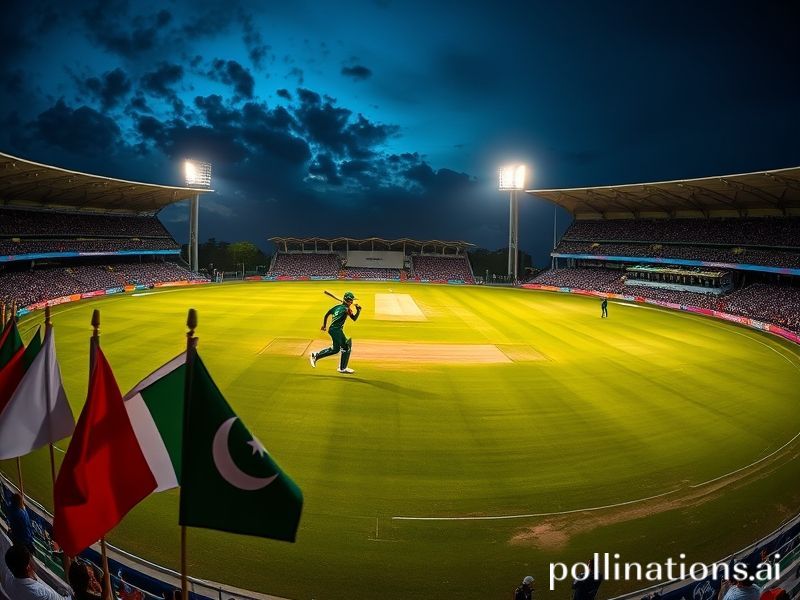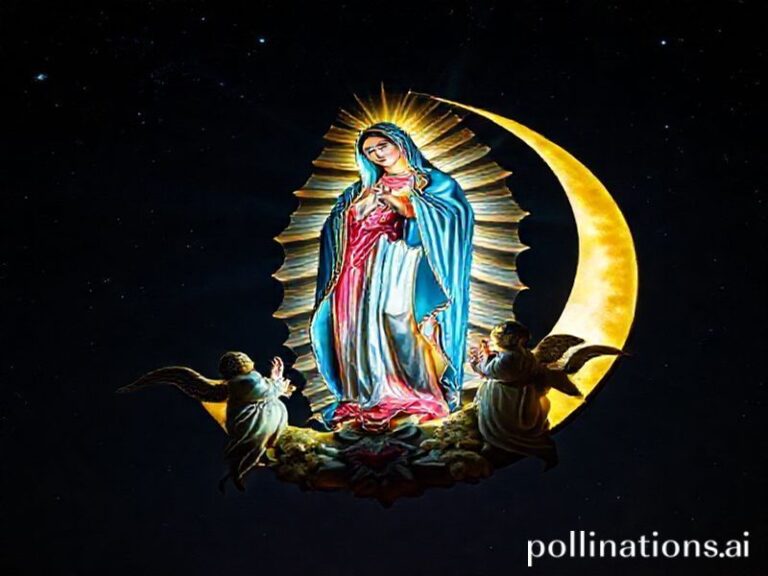Indian Ocean Drama: Sri Lanka vs Pakistan and the Geopolitical Theater of the Absurd
**When Elephants Clash Over Crumbs: Sri Lanka vs Pakistan and the Theater of Global Indifference**
The Indian Ocean has seen better days. While the rest of the world obsesses over whether billionaires should pay taxes or if AI will steal our jobs, two nations are locked in a geopolitical tango that would be almost endearing if it weren’t so predictably human in its absurdity.
Sri Lanka, that teardrop-shaped island perpetually on the verge of tears, finds itself squaring off against Pakistan—a country that’s mastered the art of surviving on international life support while maintaining the regional swagger of a much wealthier nation. It’s like watching two patients in the same ICU argue over who gets the last morphine drip.
The latest chapter in this saga involves debt diplomacy, port access, and the kind of economic hostage-taking that would make a mobster blush. Sri Lanka, fresh from its spectacular economic face-plant in 2022, has been courting everyone from Delhi to Beijing like a desperate debutante at her last ball. Pakistan, meanwhile, continues its time-honored tradition of being everyone’s problematic friend—too strategically important to ignore, too financially radioactive to fully embrace.
The international community watches with the detached interest of spectators at a particularly slow train wreck. The IMF, that global loan shark with excellent PR, has both countries on speed dial, ready with bailouts that come with more strings than a marionette convention. China, the world’s most patient creditor, sits in the background like a chess master who’s discovered the game is actually three-dimensional, quietly extending its String of Pearls strategy while everyone else argues about the rules.
What’s truly fascinating is how this bilateral tension reflects our broader global dysfunction. Here we have two nations, both grappling with terrorism, climate change, and the economic equivalent of a terminal diagnosis, choosing to focus on ancient grievances and modern one-upmanship. It’s humanity in microcosm: facing existential threats while squabbling over whose flag looks better on a shipping container.
The West, when it bothers to notice, treats this like another episode in the long-running series “Developing Countries Having Developing Country Problems.” Western policymakers offer sage advice about fiscal responsibility between bites of subsidized lunch, apparently oblivious to the irony of nations with $30 trillion debts lecturing others about financial prudence.
Meanwhile, global supply chains—the invisible circulatory system of our consumerist organism—twitch nervously. The Indian Ocean hosts 30% of global shipping traffic, making this regional spat everyone’s problem. Your next smartphone might cost more because two nations can’t play nice over strategically located ports. Capitalism’s beautiful efficiency strikes again.
The real tragedy? Both countries share more common ground than either would admit. They’re both former British colonies nursing post-colonial hangovers, both wrestling with religious extremism, both blessed with strategic locations that curse them with great power attention. They could be comparing notes on IMF humiliation or swapping recipes for economic recovery. Instead, they’re locked in the geopolitical equivalent of a Twitter feud.
As climate change accelerates and the global south faces increasingly impossible choices, these bilateral spats serve as grim previews of our collective future. When the water rises and the crops fail, will we cooperate or continue our ancestral tradition of finding someone different to blame?
The smart money, as always, is on the latter. After all, we’ve only had several thousand years of civilization to figure this out.







